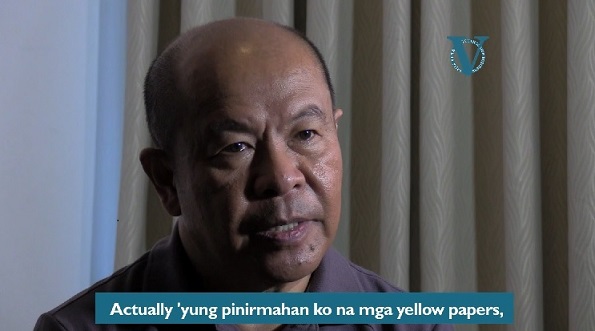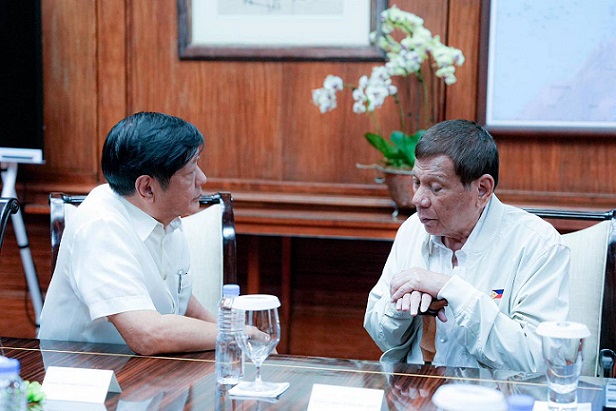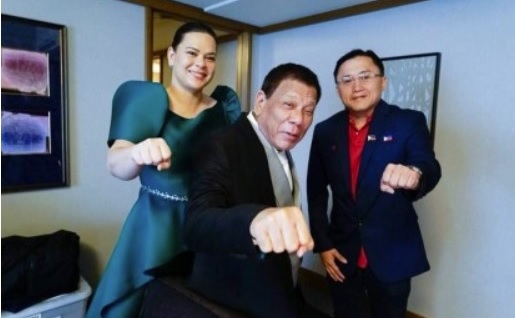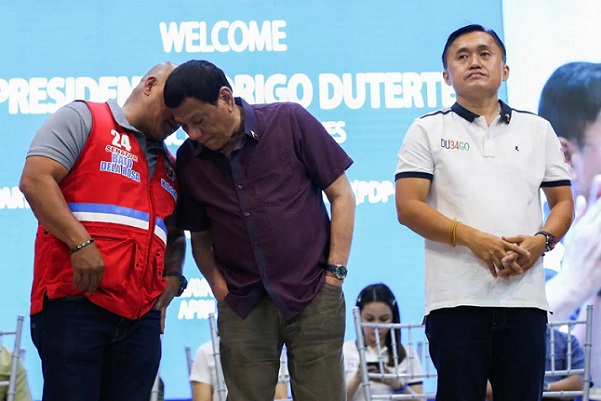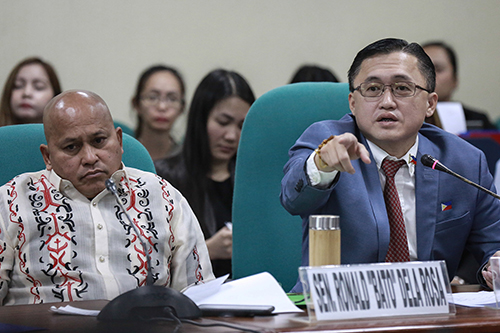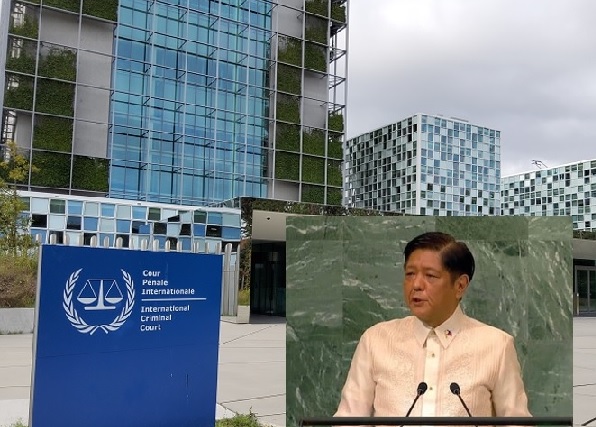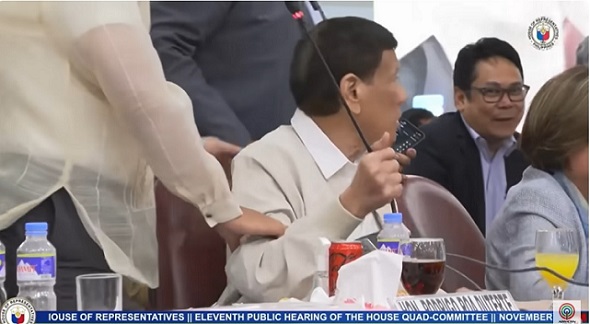
The apoplectic reaction of Rodrigo Duterte during the Nov. 13 hearing of the House quad committee when former senator Antonio Trillanes IV presented some contents of the former president’s bank accounts in the Bank of the Philippine Islands is not surprising at all.
Since the news on those bank accounts of Duterte and his daughter, Vice President Sara Duterte, were first published on April 28, 2016, the former president’s reaction has ranged from lying to more lying to more lying.
In the course of his endless lying, sometimes his mind trips and he blurts out the truth, such as when he said during the quadcom hearing that it is not impossible for his bank accounts to now hold even P5 billion.
He said: “I was born in 1945. Nagtrabaho ako, lahat ng trabaho, lahat ng hirap, hanggang bago ako nag-retire sa politics. Do you think I cannot accumulate even P5 billion? Sa negosyo ng asawa ko, pati ang sweldo ko? Eh, sir, may negosyo ang asawa ko, both the first and the second, puro mayaman ‘yan sila. Marunong magnegosyo, eh, plus ang sweldo ko malaki. Do you think I cannot accumulate even P5 billion?”
(I was born in 1945. I worked, all kinds of work, all the hardships until before my retirement from politics. Do you think I cannot accumulate even P5 billion? From my wife’s business including my salary? Sir, my wife has a business, both the first and the second, both of them are rich. They know how to engage in business, plus my salary, it’s big (amount). Do you think I cannot accumulate even P5 billion?)
So, he has P5 billion now?
That’s a substantial increase from the P2.2 billion that were reflected in his BPI accounts in 2014. But it is believable, considering that the last 10 years covered his presidency, from 2016 to 2022.
Trillanes was not off the mark when he said that “the regular credits are actually dividends of the illegal drug trade” and that “the total could run to billions of pesos.”
The amount in the Rodrigo and Sara Duterte joint accounts were not included in their Statement of Assets, Liabilities and Net worth, a requirement for all public officers and employees to file annually.
Illegal drugs connection
Trillanes connected the huge bank deposits to illegal drugs through the manager’s checks issued in 2011, 2012, 2013 that were traced to have come from Sammy Uy, who was identified as a drug lord by self-confessed member of the Davao Death Squad, Arturo Lascañas.
The checks —ranging from P7 million to P10 million each — totaling almost P134 million were in the name of Duterte and members of his family – Sara, Paolo, Sebastian and Cielito S. Avanceña, his long-time partner.
Trillanes took note of “a pattern of periodic credits/deposits” in the Duterte accounts every March and October, which, he said, coincided with the “periodic encashment of checks” during those months.
Based on information he has gathered, Trillanes said Duterte’s bloody war on drugs is fake. He said it’s actually a turf war among drug syndicates with Duterte as, in the words of Lascañas, “the lord of all drug lords in the Southern Philippines.”
Birthday gifts
The March 28, 2014 bank entries were mind-boggling. The first was in the amount of P55,131,747.32, followed by P41,721,035.62. Then, there were four deposits of P20,000,000.00 each. The last deposit for the day was P16,852,832.94.
It was the 69th birthday of Duterte, who was then mayor of Davao City.
I find the first two deposits intriguing. I can understand birthday gifts of P20 million each from businessmen or friends of the mayor. But who would write a check down to the last centavo, such as the first two and last deposits, as a birthday gift? Are those proceeds from another mysterious business?
Bank secrecy law
The bank account numbers of the sources of the deposits are in the documents that Trillanes submitted to the Senate Oct. 3, 2017, after delivering his privilege speech. VERA Files obtained the documents from the Senate records.
The question is, who owns those bank accounts’ sources of deposits? The only way to know is by scrutinizing the bank records, which cannot be done easily because of Republic Act No. 1405, or the Bank Secrecy Law. It states that “all deposits of whatever nature with banks” are confidential and “may not be examined, inquired or looked into” by any entity.
However, there are exceptions to the bank secrecy law. One is for the depositor to issue a waiver, a written permission authorizing disclosure of information from his accounts. It is seriously doubtful if Duterte will agree to it.
Another is “in cases of impeachment of the president, vice president, members of the Supreme Court, members of the Constitutional Commissions, Ombudsman for culpable violation of the Constitution.”
Progressive groups are reportedly working on filing an impeachment complaint against Vice President Duterte amid disclosures on misuse of public funds at the hearings being conducted by the House Committee on Good Government and Public Accountability.
Read this column also in VERA Files
